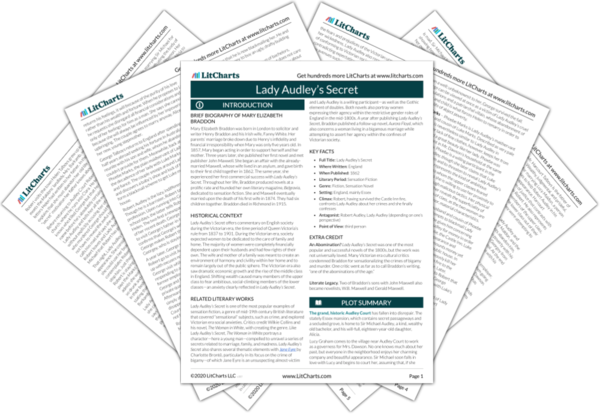Lady Audley describes her most triumphant moment when the dreams of her childhood are realized. She argues that she didn’t truly do anything wrong, since she had no guarantee George would ever come back and she intended to fulfill the Victorian ideal of a loving, faithful wife to Sir Michael. Again, Lady Audley avoids taking responsibility for the crimes she committed in the pursuit of gaining and protecting her wealth.
